 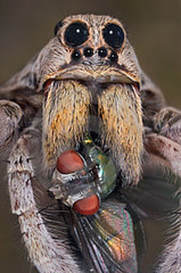 Would you like this fellow waiting for you in your garage? Would you like this fellow waiting for you in your garage? When I was about 10 years old, I lived in a small town on a prairie. I had to walk to and from school each day taking a short cut through our dark, crowded garage. This was fine until the spiders set up home in each corner of the garage-door opening, spinning huge blobs of flimsy webs, hanging there, ready to drop on my head or down my back. I ran under them to the safety of the alley. They feasted on Minnesota’s mosquitoes, growing to what I imagined to be tennis ball-sized bodies with red and yellow stripes, long, thick hairy legs, and large bulb-like eyes. My brother and sister thought they were monsters; we shudder when we remember them. But actually they were wolf spiders because like wolves, they’re predators. They lie in wait for prey to come close. Then they chase and pounce on it, stinging it with their venom that dissolves the organs so the spider can suck up the nourishment. In March of 2012, wolf spiders made news in Wagga Wagga, Australia, a town of 50,000 a few hours south of Sydney, Australia’s largest city. Some say due to climate change, it rained much more than usual, causing the river, peacefully flowing through the town, to flood the fields. It flooded the hibernation holes of the wolf spiders, which they had dug a few months earlier in the sun-baked ground and lined with silk, ready for the coming winter. The floodwaters woke up the spiders, which fled for higher ground, bushes, trees, houses, poles, any high places. As more than a million spiders ran they trailed behind “drag lines” of silk that caught the wind lifting some of them through the air. Countless thin trails of silk covered the bushes and fields, creating a blanket of web, looking like snow. No one had seen anything like it. When I read it about it, I knew instantly that this was the spider that terrorized me as a child. Wolf spiders are found all over the world, in Minnesota and Australia. I believe that this was a small whisper from the earth about what is happening to it. If this damage in Wagga Wagga was caused by climate change, imagine the invasions and changes that may yet come. The next even could be a shout. 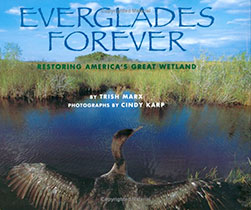 Trish Marx has authored some terrific nonfiction titles. Check out Everglades Forever for some more high interest reading about animal behavior.
0 Comments
Leave a Reply. |
The Nonfiction Minute returns on 9/12/20.We publish the Minutes for the coming week on Saturdays so teachers can make plans and we update the Minute for each day, so a new Minute appears at the top of the queue. ArchivesCategories |


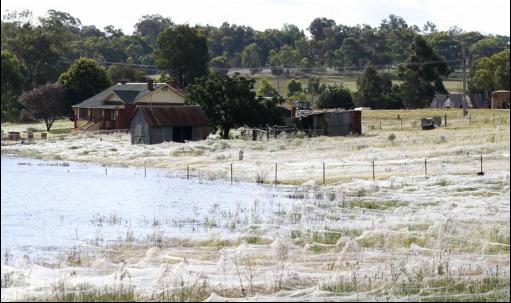
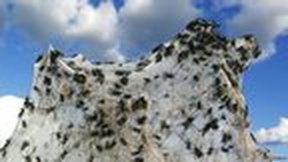
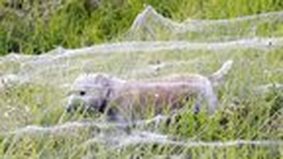
 RSS Feed
RSS Feed
